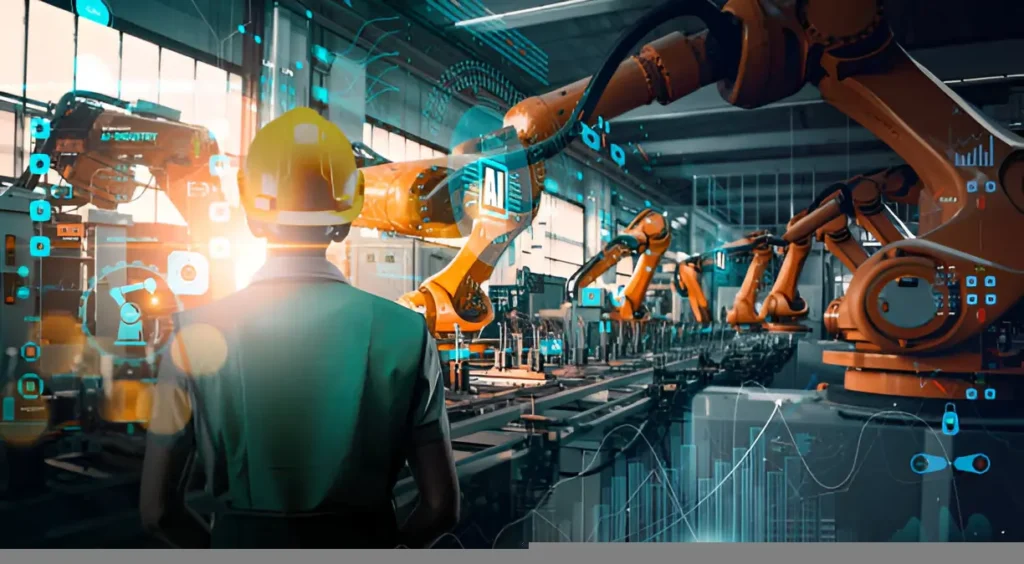Introduction to Smart Factory Automation
The manufacturing industry stands at the precipice of a significant evolution as smart factory automation becomes increasingly mainstream. This pioneering evolution is primarily driven by the ability to automate complex processes using the latest technological advancements. Although the industry has traditionally relied on manual labor and gradual mechanization for improvements, it is now leveraging automation to unlock a new phase of development characterized by significantly reduced operational costs and minimized human errors. Smart factories blend digital and physical resources seamlessly, employing artificial intelligence, machine learning, and advanced robotics. These elements collectively push the boundaries of achievable efficiency and productivity. Indeed, smart factories are rapidly transitioning from a futuristic concept to a fundamental reality, reshaping how products are made and delivered globally and aligning with contemporary standards and expectations.
How Smart Technology is Enhancing Efficiency
The magic of smart technologies in manufacturing lies in their capability to streamline operations and introduce significant efficiency improvements. Automation allows machines to operate continuously with minimal human intervention, drastically reducing labor costs and boosting production speed and output quality. One clear example is predictive maintenance—a data-driven approach that monitors real-time machinery conditions to identify potential issues before they lead to downtime. By proactively fixing problems before they occur, manufacturers can avoid costly repairs and maintain uninterrupted production, which is crucial for achieving business goals and fulfilling customer demands. Smart manufacturing stands on the verge of a breakthrough by effectively linking machines and systems, ensuring harmonious and continuous operations with minimal hiccups. This strategic implementation of smart technologies ensures operational continuity and optimization, which are vital for success in a competitive global marketplace.
The Role of IoT and AI in Modern Manufacturing
Integrating the Internet of Things and AI has been instrumental in redefining modern manufacturing processes. IoT devices are the foundational layer connecting machinery across the factory floor, enabling real-time data exchange and comprehensive monitoring, leading to informed decision-making and operational enhancements. Meanwhile, AI serves as the analytical brainpower that drives optimization. AI systems are programmed to analyze historical data, learn from each operational cycle, and adapt to new variables, thus improving their performance over time. This continuous learning and adaptation make AI-driven systems invaluable in dynamic manufacturing environments that demand flexibility and precision. The potential for intelligent automation in manufacturing is vast, as this fusion of IoT and AI creates a dynamic and responsive manufacturing ecosystem, allowing manufacturers to increase output while minimizing waste and maximizing resources.
Benefits of Automation for Businesses
Adopting smart factory automation heralds a new era of efficiency, agility, and competitiveness for businesses. Financial gains are among the most immediate and tangible benefits, as automation reduces labor costs and a corresponding increase in productivity and throughput. By maintaining consistent, high-quality production standards, automated systems ensure high customer satisfaction—a critical factor in gaining and maintaining market share in today’s fast-paced business environment. Additionally, automation allows mass customization, empowering companies to quickly modify production processes to align with market demands with minimal disruption. This agility enables businesses to cater to diverse customer preferences and create niche products without incurring excessive costs associated with traditional manual processes. Swiftly transitioning between different product lines also offers a competitive advantage in rapidly changing markets where consumer preferences can shift almost overnight.
The Environmental Impact of Automated Factories
Beyond economic benefits, automation in manufacturing plays a critical role in promoting environmental sustainability. Automated systems often optimize energy consumption and utilize resources more efficiently than their human-operated counterparts, reducing carbon footprints and diminishing adverse ecological impacts. By minimizing waste and enhancing precision through automation, factories can contribute toward more sustainable production methods and align with global sustainability initiatives to curb global warming and environmental degradation. Manufacturers who embrace this new, more conscientious approach to production stand to gain from an ethical and regulatory perspective in an increasingly eco-conscious market. This dedication to sustainability can also improve brand image and customer loyalty among eco-conscious consumers.
Challenges in Adopting Factory Automation
Despite the numerous benefits, the journey toward complete smart factory automation is paved with challenges and complexities. High initial investments in technology infrastructure pose a significant barrier for many companies, especially small and medium enterprises, that may lack adequate financial resources. Additionally, securing a skilled workforce capable of managing and maintaining advanced systems remains a pressing challenge. Integrating cutting-edge technologies into existing production frameworks requires strategic vision, careful planning, and effective change management processes to ensure smooth transitions and prevent disruptions. Organizations must address these obstacles diligently, investing not only financially but also in training and developing their workforce to overcome these complexities and harness the full potential of smart factory automation.
A Look at the Future of Manufacturing
Looking forward, the trajectory of the manufacturing industry is intricately linked with technological innovation and adoption. The future envisions factories becoming even more integrated and intelligent, with networks expanding to include internal machinery, external supply chains, and distribution networks. Innovations such as 5G connectivity and quantum computing stand to revolutionize the speed and scope of data processing, opening up new possibilities for factory operations and previously unimaginable efficiencies. To remain at the forefront of industrial development, manufacturers must be open to change and willing to invest in emerging technologies. These technologies promise to redefine the contours of production, setting new standards for global manufacturing and ensuring sustained growth amidst increasing competition and consumer expectations.
Read more: Why Personalized Recognition Is the Future of Workplace Engagement


